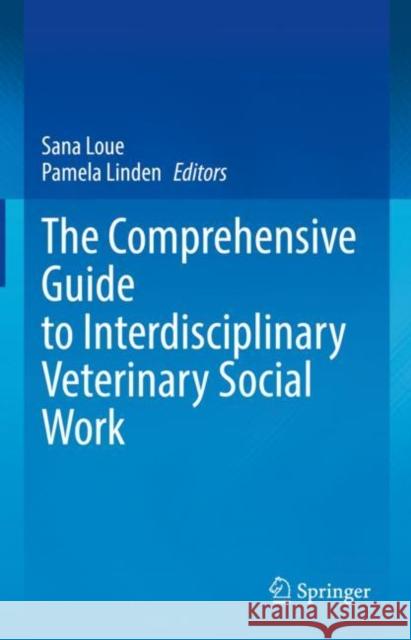The Comprehensive Guide to Interdisciplinary Veterinary Social Work » książka
The Comprehensive Guide to Interdisciplinary Veterinary Social Work
ISBN-13: 9783031103292 / Angielski / Twarda / 2022 / 367 str.
The Comprehensive Guide to Interdisciplinary Veterinary Social Work
ISBN-13: 9783031103292 / Angielski / Twarda / 2022 / 367 str.
(netto: 460,04 VAT: 5%)
Najniższa cena z 30 dni: 385,52
ok. 16-18 dni roboczych.
Darmowa dostawa!
This book responds to the needs that arise at the intersection of people and animals, focusing on human-animal interaction, human-animal studies, the emotional work of caring for animals, and animal-assisted interventions and therapies. Unlike many works that focus primarily on issues at the micro level, such as animal-assisted interventions, this volume is unique in its focus on issues arising at the micro, macro, and mezzo levels, encompassing human-animal issues and interactions at the level of individuals and family, groups, institutions, and communities. Accordingly, this comprehensive guide addresses the need to better prepare practitioners to work in interdisciplinary environments, whether in the context of theory, research, practice, or advocacy. The authorship of the volume reflects the interdisciplinary foundations of veterinary social work, with contributions from social workers, psychologists, veterinarians, physicians, anthropologists, and bioethicists. The volume is divided into five parts that examine, respectively: the foundations (history and scope) of veterinary social work (Part I); the practice of veterinary social work with individuals, in the context of community programs, and in social work practice (Part II); veterinary social work and the veterinary setting, including veterinary well-being and conflict management (Part III); veterinary social work education (Part IV); and the future of veterinary social work (Part V). Importantly, the volume addresses not only practice issues in the veterinary, clinical, and community settings, but also examines ethical concerns in the clinical and research contexts and the implications of cultural and societal variations on the practice of veterinary social work. The Comprehensive Guide to Interdisciplinary Veterinary Social Work is the definitive resource for social workers and psychologists new to practice issues relating to animals, social work and psychology students at the graduate and undergraduate levels, veterinarians and veterinary students, hospital administrators (human hospitals), and veterinary hospital managers.











